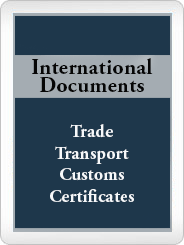The Pre-Shipment Inspection (PSI) can refer, depending on the country, to the verification of the quality and quantity of the exported goods, their packaging, their price (export market price, value in customs), customs classification, as well as suitability for importation. These type of inspections are carried out by specialized private companies that must respect the Agreement of the World Trade Organization (WTO) that determines the procedures to carry out this pre-shipment inspections and controls.
Once the inspection has been carried out, if it is satisfactory, the competent body issues a certificate (Report of Findings). Only after this is done can the goods be loaded onto the ship. The cost of the inspection is generally borne by the importer or his government. The countries that require these controls before importation establish their own conditions: value threshold above which the control is mandatory, goods affected or exempted, etc.

Choice of inspection date
In practice, once the Export Contract has been signed, the exporter is contacted directly by the designated body that will be responsible for the inspection and issuance of the certificate; the designated body sends the exporter an information request form in which the he must specify, in addition to the essential information for the various required controls, the date on which the inspection is to be carried out.
The choice of the inspection date is essential as it is closely linked to the shipment of the goods:
- In the case of bulk cargoes, they are generally inspected at the time the ship is loaded.
- In the case of inspection and sealing of full containers, the inspection date must coincide with the packaging date.
- In the case of specific packaging (such as dangerous goods), it will be necessary to validate the control points (for example, validity dates of paintings) and carry out the inspection in the place determined for it, to avoid having to redo the entire process, this time on behalf of the exporter.
Maritime cargo processing
Several African states also impose specific restrictions directly related to shipping. Depending on the country, it will be a matter of providing a cargo certificate, a cargo tracking or an identification sheet, which is prepared before the ship leaves the port. The cost is based on the value of the cargo and, in the event that the certificate is not presented, fines can be high. Therefore, it is important for the exporter to verify this requirement for a cargo certificate.
Verification of conformity
An increasing number of countries (including Saudi Arabia, Algeria, North Korea, Egypt, etc.) require that products imported and/or traded on their territory comply with local or international standards. That is about controlling the safety and protection of property and, at the same time, protecting public health and the environment.
These controls are carried out upon arrival in the country of the imports or upon departure in the country of the exporter; in the latter case, independent companies, such as SGS are accredited by foreign governments to issue, after inspection, the certificate of conformity.
 To obtain the model of Inspection Certificate click on:
To obtain the model of Inspection Certificate click on:
Certificate of Inspection




